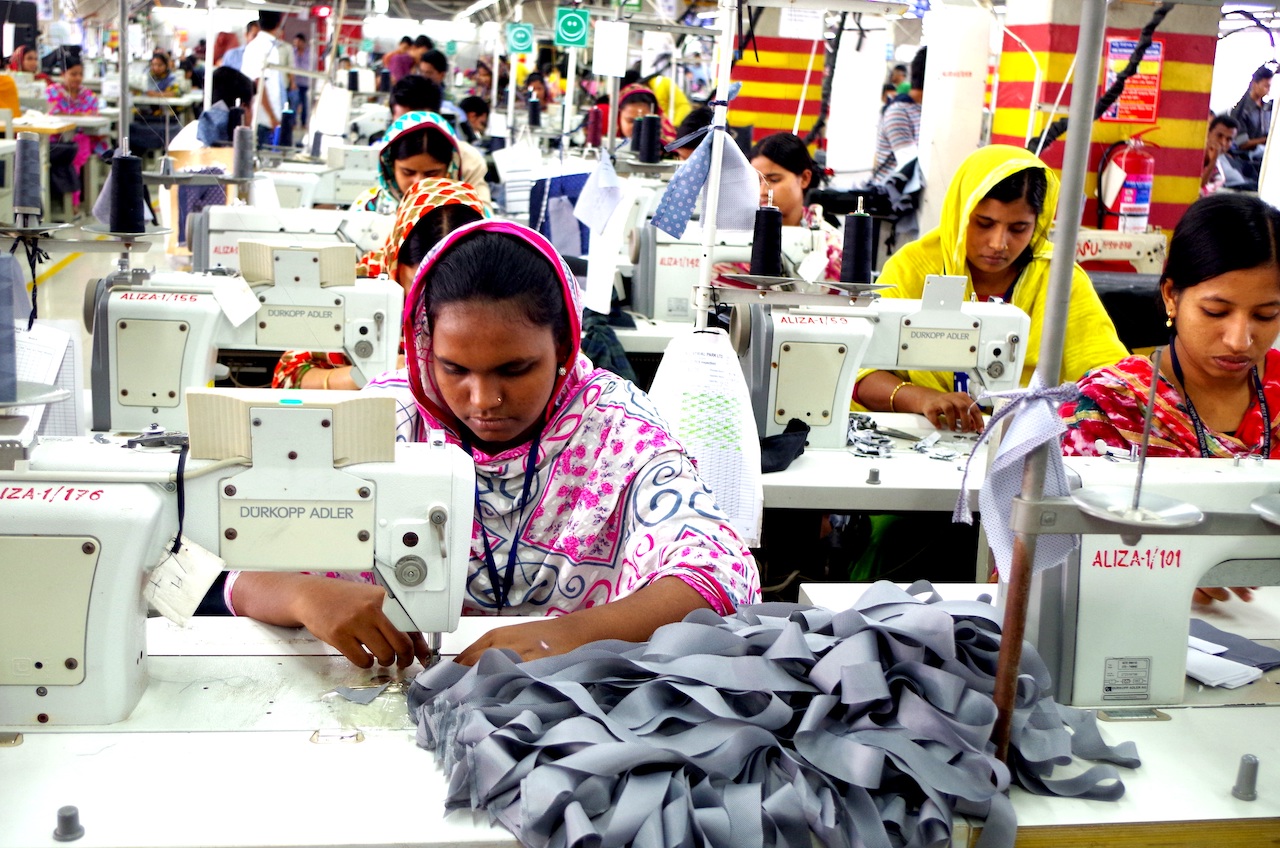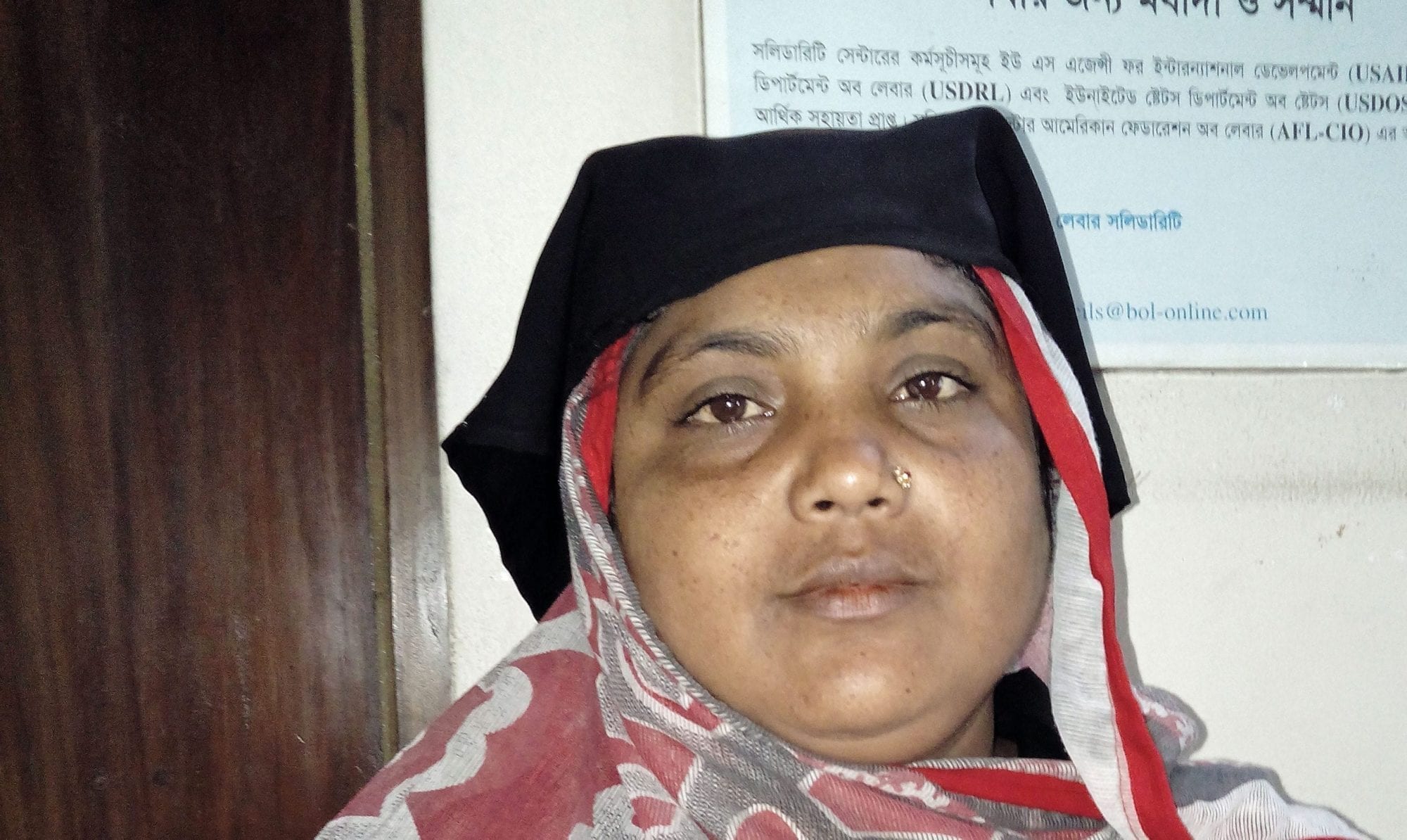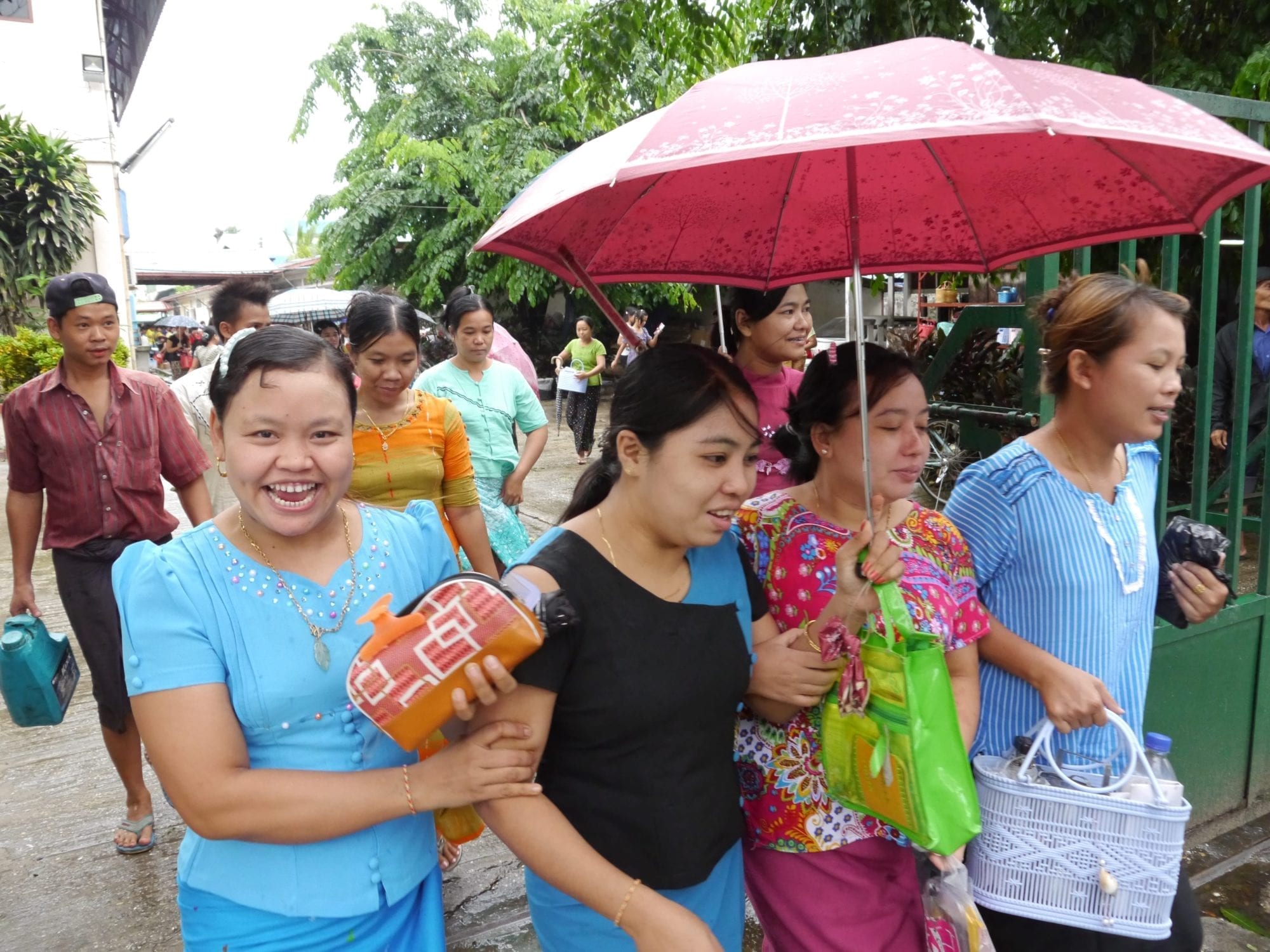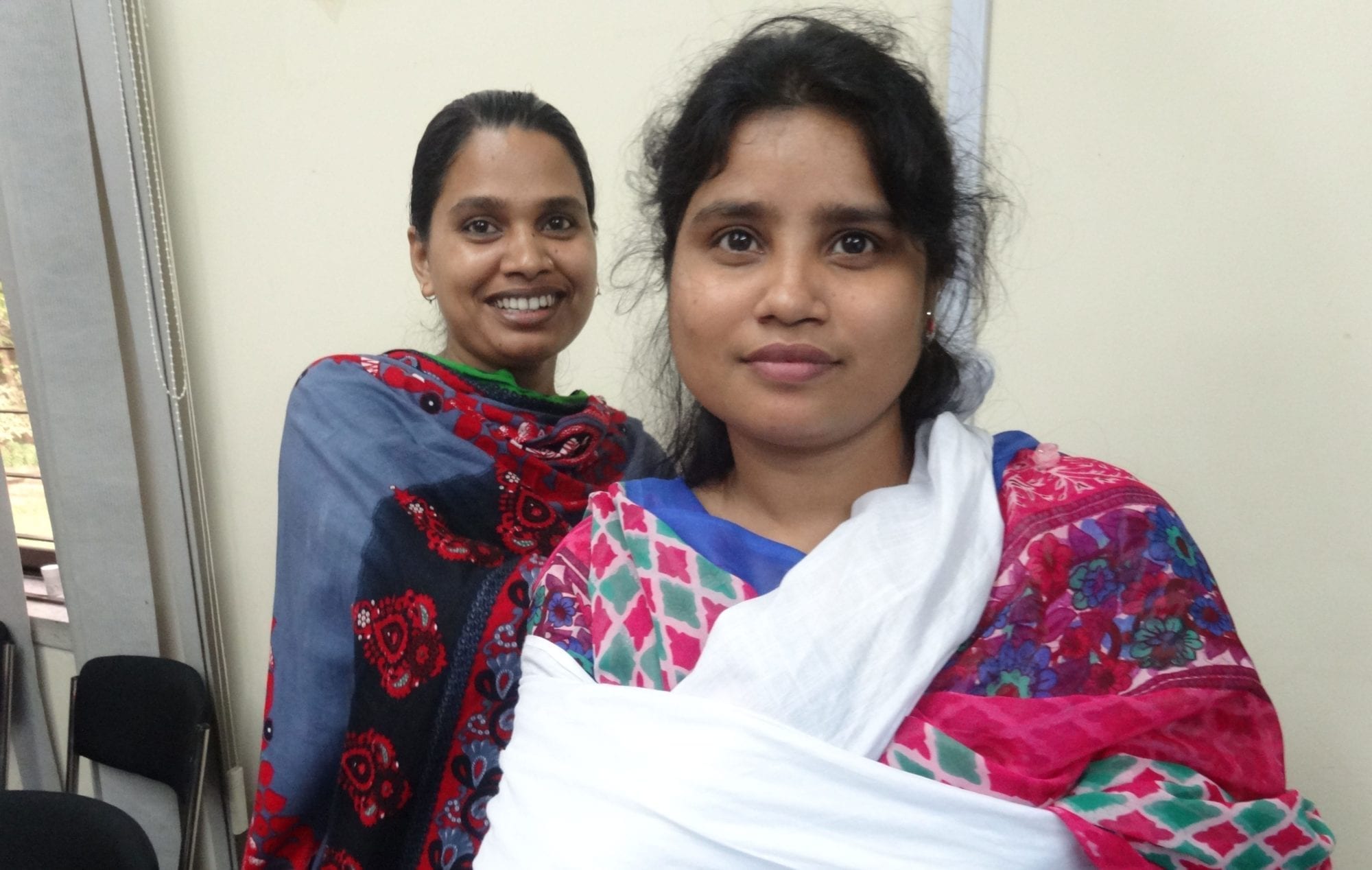I am Rehana Begum. I got married at age 13. After marriage, my education stopped. Now I have two children. When my in-laws tried to arrange a second marriage for my husband, we left our village home in Paikgachha, Khulna district, where my husband was a day laborer,...

In Bangladesh, the Solidarity Center advances worker rights in partnership with independent unions in the garment, domestic work, seafood processing and shrimp farming, tannery, tea and construction sectors, and promotes the rights of Bangladeshi migrant workers. The Solidarity Center also partners with Bangladesh unions to expand equity and inclusion for a more diverse and representative labor movement and to counter gender-based violence and harassment in the world of work. (See a summary of our recent projects. আমাদের সাম্প্রতিক প্রকল্পগুলির একটি সারসংক্ষেপ দেখুনঃ)
Through capacity building on safe migration and human trafficking prevention, advocacy and organizing, the Solidarity Center joins with grassroots migrant associations and unions to call for decent work for Bangladeshi migrants.
The Solidarity Center supports several worker community centers (WCCs), where workers and community members come together to learn about their rights and build collective power to claim them, train to become effective advocates for critical health and education services, and positively engage in the civic and economic life of their communities.
The Solidarity Center also provides legal assistance to workers in Bangladesh’s export-processing zones (EPZ) to assist them in defending their rights. By law, EPZ workers are denied the right to freely form and join a union, in violation of international labor standards.
As extreme heat and rising sea levels make employment in key industries, including the garment sector, more hazardous, it is critical for unions to have a say in how industry adapts to climate change. The Solidarity Center supports union partners to conduct research and advance worker-centered adaptation to the climate crisis, and facilitates cross-movement coalition building between labor and environmental advocates. In Bangladesh’s leather tannery sector, the Solidarity Center provides capacity building support to a sectoral union to shed light on occupational health and safety hazards tied to environmental degradation.
Although collective bargaining remains extremely difficult in Bangladesh, and often provokes employer retribution, unions are negotiating groundbreaking, gender-responsive collective bargaining agreements to improve wages and working conditions, with support from the Solidarity Center. The Solidarity Center also has trained thousands of workers on fire and building safety since the Tazreen Fashion and Rana Plaza disasters in 2012 and 2013, respectively, in which more than 1,200 garment workers lost their lives.
Celebrating Workers: 2015 Year in Photos
Whether building a towering office building in downtown Zimbabwe, sewing garments in a Bangladesh factory or digging for phosphate in Mexico mines, the world's unsung working people demonstrate, time and again, the dignity of work. Here, we celebrate some of the...
Bangladesh: ‘An Effective Union Can Ensure Fire Safety’
Bilkish Begum says she and other workers at a garment factory in Bangladesh could not discuss implementing fire safety measures with their employer—even after the deadly blaze at Tazreen Fashions factory killed 112 workers three years ago next week. Only when they...



